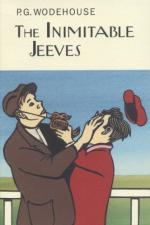|
This section contains 7,133 words (approx. 24 pages at 300 words per page) |

|
SOURCE: “The Innocence of P. G. Wodehouse,” in The Modern English Novel: The Reader, The Writer and The Work, edited by Gabriel Josipovici, Barnes & Noble, 1976, pp. 186-205.
In the following essay, Medcalf praises Wodehouse for his innocence and originality, maintaining that his use of language “lies very much in one tradition of English writing, perhaps the most enduring and specifically English—humour.”
C.S. Lewis, in his autobiography Surprised by Joy, describes as one of the crucial events in his mental life the discovery of C.F. Alexander's distinction between Enjoyment and Contemplation. They compose an analysis of consciousness. As I read this book, I contemplate it: I enjoy my act of contemplation. If I turn to examining my consciousness of this book, then I cease to contemplate the book, and cease to enjoy that contemplation: I contemplate my consciousness and enjoy a certain second-order consciousness of that...
|
This section contains 7,133 words (approx. 24 pages at 300 words per page) |

|


